They call him superman
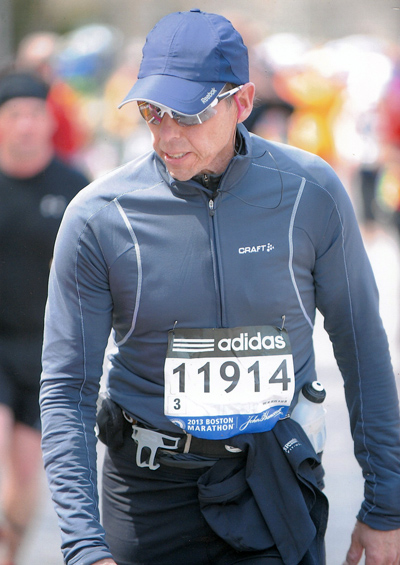 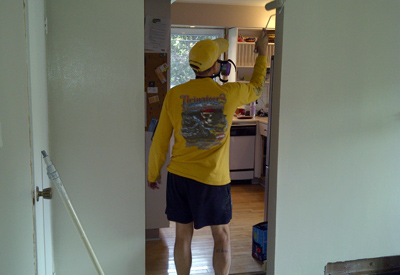 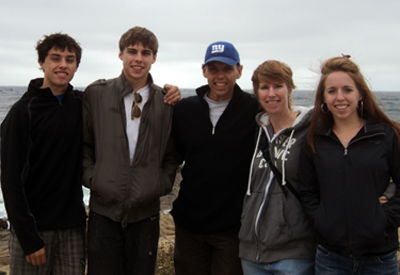 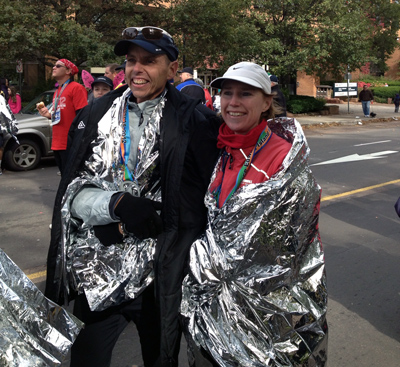 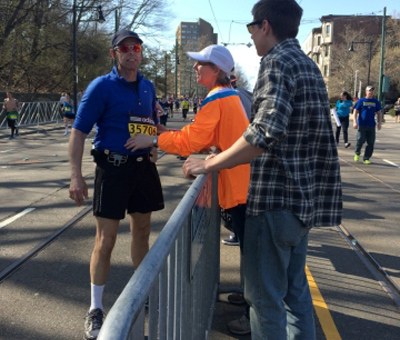 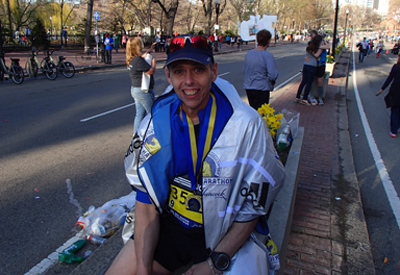 |
“My last good marathon was Ottawa 2012 and I crossed the finish line crying,” says 52-year-old Randy Brown, who at the time had just won his battle with throat cancer. He finished the marathon in 3 hours and 20 minutes—a time that qualified him for Boston, his lifelong dream.
“We stayed in a brown-stone right near the marathon the next year. It was euphoric,” says Brown through a smile. “I was sure I could run that thing in 3 hours flat. But 20 kms in, I knew something was wrong. I finished in 4 hours and 2 minutes, which meant I would not be able to return. It was 20 minutes before the bomb went off.”
Brown will tell you that the Boston Marathon saved his life that year because upon his return to Montreal he visited one of his doctors at the McGill University Health Centre (MUHC). Within 24 hours Brown was diagnosed with double pneumonia and lung cancer. He had a 3 cm malignant tumour.
Facing cancer head on
Brown is a big-framed guy who for the past 20 years has worked as a contractor. He is lean from his years of running. He says he has always loved carpentry—a hobby that he had picked up from his father. He jokes that he could never be a model from too many mishaps on the job. With a soft and vibrant attitude, his smile comes easily and it is no problem believing he never has to look for work. Through simple word of mouth, he is always busy.
“When I was told I had stage four throat cancer—a diagnosis made after not being able to swallow my dinner one night—I didn’t look at it as a problem. To me it was a challenge. I try not to wake up in the morning saying what’s wrong, I focus on what’s right.”
Following his treatments and surgery for his throat cancer he ramped up his running. “I would run almost a marathon a day except on Sundays because my wife would hide my shoes. It was my mental therapy,” says Brown. “I would wake at 3 a.m. and just go.”
When he was diagnosed with lung cancer his reaction was the same as the first diagnosis…he was calm and ready to go the distance. Part of Brown’s lower left lung and five lymph nodes were removed and again he faced radiation and chemotherapy. He tried to stay positive, bringing his caregivers at the MUHC muffins and lots of smiles and humour. And he still runs during the wee hours but not as long or as often. But he and his wife were noticing his ray of sunshine attitude was often checked at the family front door. “Alison would mention that I had a happy face for everyone else but would be down at home,” says Brown who has been married for 28 years and has 19 year-old boy and girl twins and a 22-year-old son. “I felt guilty but at the same time I couldn’t seem to rise above this.”
Dealing with the psychological impact
Despite his positive outlook on life and his running Brown saw and can still see dark days. He lives with constant pain from his throat surgery and can only eat food the consistency of apple sauce, not to mention his lack of saliva which requires him to drink water all the time, including in the middle of the night, and the thought of the possibility of the cancer coming back and maybe never being able to run like he did.
“That’s when I started to see Dr. Marc Hamel, clinical director of the MUHC Psychosocial-Oncology Program,” says Brown. “I have been seeing him every two weeks. He is worried about depression so he wants to continue to see me. It is good because it allows me to vent and I have been given permission to be angry and feel my emotions when I feel them. I realize I need that.”
The reward of giving back
After all Brown has received from the MUHC he likes to give back when he can. He thanks everyone involved in his exceptional care through both cancers but one person stands out for Brown: Elizabeth Blouin, nurse pivot in Oncology for the Head and Neck Team, his main nurse.
“Elizabeth was there for me around the clock, literally. She actually gave my wife Alison her home phone number. She was my quarter back—she took care of everything, every single pill I had to take and made sure I saw the best doctors. I don’t know how she did it. It almost brings tears to my eyes when I talk about her.”
So when nurses or physicians ask Brown if he would mind talking to other patients with cancer about his story he does not hesitate. One day while speaking to someone a woman overheard his story and noticed the Boston Marathon jacket he was wearing. She mentioned that her daughter was married to one of the Boston Athletic Associations directors and she would see if she could get him in as a guest.
This past week Brown returned to the Boston marathon. He had to walk for some of it and he stopped once for oxygen. He was told he should not keep going but Brown waved them off saying his wife was waiting to see him at the finish line.